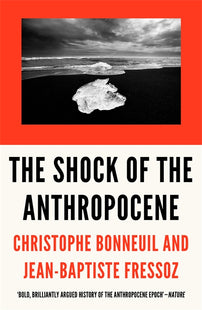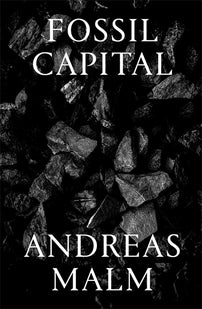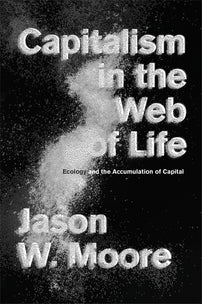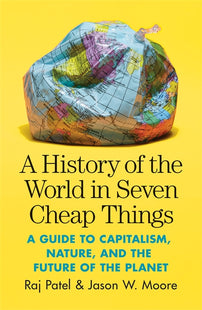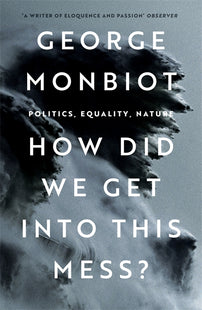Climate Change is Linked to Issues of Power, Debt and Conquest: Interview with Jean-Baptiste Fressoz and Fabien Locher
For Jean-Baptiste Fressoz and Fabien Locher, the evolution of climates has been of concern to humans for five centuries, and the subject has been central to political and social debates well beyond scientific circles.
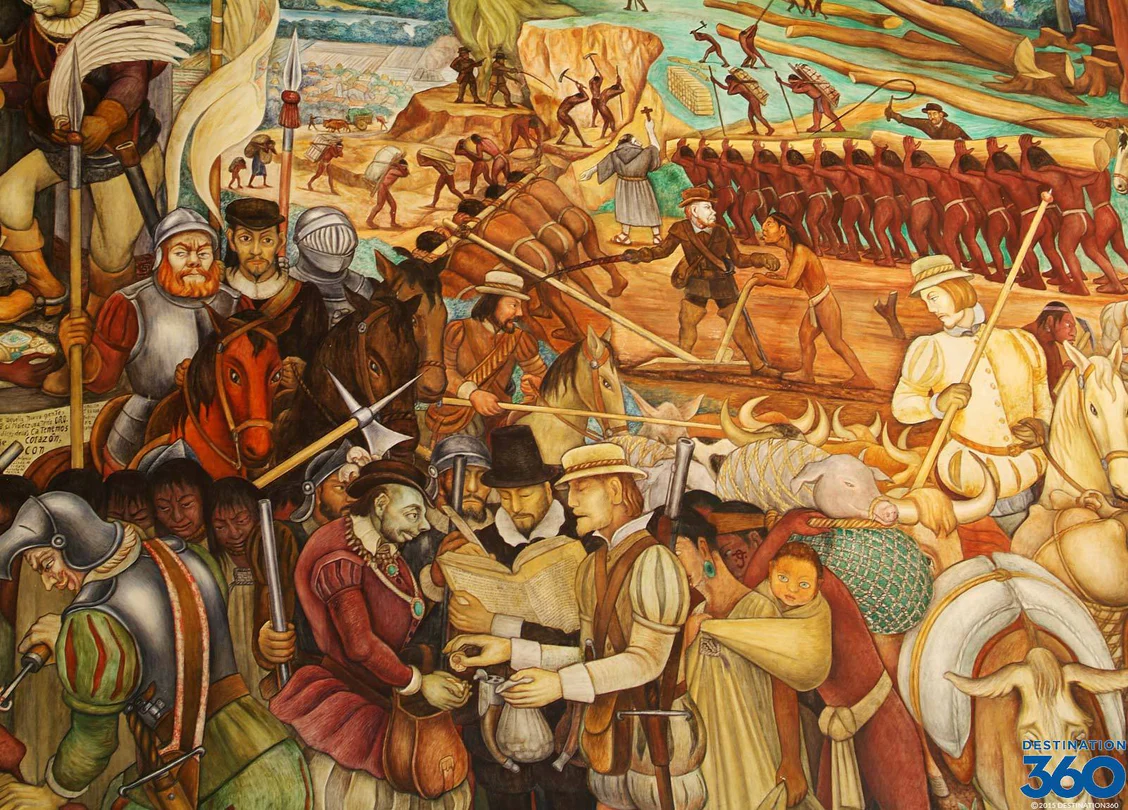
In Connecticut, as in many parts of the world, the temperature was rising. This observation, cited in Les Révoltes du ciel. Une histoire du changement climatique XVe-XXe siècle by Jean-Baptiste Fressoz and Fabien Locher, dates back to 1662. Winthrop, governor of this New World settlement, hoped to convince Charles II that colonisation led to a gentler climate thanks to land clearing. In this book, the two environmental historians and CNRS researchers trace the long-standing interest in climate change and the role that humans play in it, from the discovery of America, via the French Revolution, into the industrial age. There was just one exceptional ‘interlude’, roughly from the late 19th to the late 20th century, when technical progress allowed humanity to forget about the climate for a few decades. In other words, while the scale of today’s upheavals is immense, the way we look at climate change is not so new, which influences the way we tackle the problem.
You show that climate change has been a concern of Western societies since the colonisation of America. How can we explain the impression that we are facing unprecedented questions?
J.-B. F. and F. L.: One major reason is that from the late 19th century, in the rich countries, vulnerability to climate hazards decreased significantly. Thanks to the railways and the globalisation of the cereals market, the connection between bad weather, famine and riots, and even revolution, was broken. The climate was no longer so politically explosive as it had been fifty years earlier. An interlude opened up during which the climate was dislodged from our awareness, but this has now come to an end.
Your book talks a lot about the water cycle and forests. Why is this central to our understanding of climate change?
J.-B. F.: You have to place yourself in the framework of natural theology, creationism if you like. The Earth was seen as a perfect creation, habitable thanks to the existence of great cycles of matter, including the water cycle, which was discussed on every scale, from particular fields up to the globe. From the 18th century onwards, however, it was known for certain that forests play an important role via the phenomena of evaporation/transpiration. Hence the idea that they are guarantors of rainfall and therefore of agricultural production. Moreover, forests were of immense strategic and financial importance at the time: they were used to build warships and, in some regions, provided 40 per cent of the aristocracy’s income.
F.L.: Forests were also vital for farming communities, as indispensable sources of wood, pasture, fertiliser, game, etc. Yet the modern state was constructed partly through the control it acquired over forests, especially those that were the ‘commons’ of the rural population. This led to incessant conflicts, which sometimes turned into insurrections. In France, the forestry technocracy – the armed wing of the state in the countryside – constantly accused people of mismanaging their woodlands, and thus of degrading the climate.
J.-B.F.: This forest prism is also a way of showing the importance of the revolutionary period for the climate issue. Several debates in the National Assembly concerned the ‘national’ forests confiscated from the nobility and the clergy. These woods provided the French state with a stable security for its loans, but it was also tempting to sell them to bail out the coffers. During the Revolution and the decades that followed, the issue came up time and again in parliament, and each time there was a debate on climate change, seen as a possible threat to France if it squandered its natural heritage. Moreover, the Revolution brought a radically new conception of individual property. It was essential for the Parisian elites to explain to the peasants of Year II that their new ‘freedom’ did not extend to letting their animals graze in private forests, or going to cut wood there. Here again, they were accused of risking changing the climate for the worse.
The impulse for your book was the discovery of an investigation into climate change launched in France in 1821. Why did that seem important to you?
F.L.: This box of old documents was an encounter with something strange: we discovered that at the beginning of the 19th century, an interior minister wrote to his prefects to ask them whether the climates of France were changing and whether man was responsible. Reading the answers, we can see that the question did not surprise his interlocutors: it was already part of their mental universe. This was a surprise that started our investigation.
J.-B.F.: Ten years ago, when we came across these boxes, the atmosphere was rather optimistic. The COP agreements and global climate governance had aroused expectations. Intellectuals like Ulrich Beck championed the idea that we had entered a new era, ‘reflexive modernity’, with societies finally able to place risk and environmental issues at the heart of politics. All this seemed a little naive to us in view of the global climate reflexivity we were discovering two centuries before.
F.L.: So, we tried to do two things. First, to unearth the long history of debates, knowledge and struggles over climate change. Secondly, at the same time, to show how human action on climate change has in many contexts lain at the heart of issues of power, political confrontations and relations of domination. In the book, we thus analyse the place of this issue in the entire history of European imperialism. Between the 15th and 18th centuries, this takes the form of a promise: Christopher Columbus in the Caribbean, the English and French in North America, explain that by clearing the land, they will improve the climate – which sanctifies their enterprise and popularises the cause of colonisation in the metropolis. It was also a discourse of sovereignty. The white man is legitimate in appropriating these lands because the natives have not done anything with them: they have not been able to improve their climate, which has remained wild like themselves. In the 19th and early 20th centuries, the British settlers in India and the French in the Maghreb went further, accusing the local populations of having destroyed the ecosystems and therefore the climates of their habitats. As one Algerian settler wrote, the Arab was ‘the enemy of the tree’. The imperial enterprise then presented itself as a work of forest and climate restoration!
The colonisation of islands such as Mauritius has long been analysed as a moment of emergence of environmental consciousness. In your book, you relativise this point. Why that choice?
J.-B.F.: The action of administrator Pierre Poivre in Île de France (Mauritius) in the late 18th century was presented as a key moment in an important book by historian Richard Grove. The island was seen as a sentinel territory of ecological collapse, where changes were very quickly apparent. However, this is not at all obvious: concerns about the disappearance of the forest, which was thought essential to maintain rainfall, were unfounded, as it is the oceans that provide a large part of the humidity of this island territory. What seems more important to us is what was starting to happen in France after the Revolution. We show how there was something specific going on there, compared to other national contexts we have studied: an extreme politicisation of the issue of human climatic action that marks the years 1790-1860. In these decades, each political camp struggled to impose its own vision of the social – and ecological – order. For supporters of the Restoration, the nobility, due to their historical roots, were the ones that could think long term par excellence: they were therefore dedicated to managing the forests and therefore the climate. A central question was also the place that the market should occupy in the life of the country: the liberals wanted a minimal state, which did not interfere to regulate the uses of nature. On the other side, people invoked the degradation of the climate that would come with deregulation.
So, climate change was often used as an indictment.
J.-B.F.: Yes, and it was a very powerful weapon. It made it possible to act in the name of higher interests: safeguarding agriculture, protection against disasters caused by disruption of the water cycle, etc.
F.L.: This is indeed a common thread, a kind of ‘climate orientalism’, i.e. a way of characterising the ‘others’ – the poor, the colonised, the rural – with reference to their (supposed) inability to conserve or ‘improve’ their climates. This has long been a criterion for imposing a hierarchy on human groups, alongside references to race or cultural backwardness. Today, people in poor countries are accused of mismanaging their resources and ecosystems. This discourse is not new.
But, at some point, scientific production leads to an impasse on the issue of climate change.
F.L.: The first thing we would like to point out is that the scientific approach to the problem goes back a long way: as far back as the 17th century in England, and in the 18th century with the birth of historical climatology. Then in the 19th century, debates raged between scientists on possible human action on the climate. But no clear conclusion was reached, for lack of irrefutable proof. At the end of the 19th century, climatology was then constructed by the assumption of a fixed climate on the scale of historical time: the climate was changing (as evidenced by the Ice Ages) but at such a slow pace that human history and climate history were disconnected. At the same time, the spectre of food shortages was receding. And we witness a gradual shift in the scale of threats: soil degradation caused by man gradually emerges as a major ecological peril. This evolution began first in Europe, then accelerated with the Dust Bowl, the large-scale erosion of the Western plains, which hit the United States between the wars. This catastrophe had a major influence on US environmental policies, which set the tone after 1945 by placing the soil issue at the centre. By and large, the threat of human-induced climate change faded from consciousness in the late 19th and early 20th century. But the interlude would be brief.
You say little in the book about the last forty years. What do you see as the theoretical issues at stake?
J.-B.F. and F.L.: This book does not speak directly about the present situation, even though it helps us to better understand our apathy in the face of change and puts in perspective the novelty of our knowledge and our ecological concerns. But it does show how the issue of climate change has been intimately linked, historically, to issues of power, capital, the state, debt, conquest. So how can we deal with the present threats? Probably by recognising that the crisis we are facing is less a matter of knowledge, values or ‘living together’ with ‘non-humans’, than of power relations, economic processes and geostrategic realities.
[book-strip index="1" style="display"]Originally published in Libération.
Translated by David Fernbach
